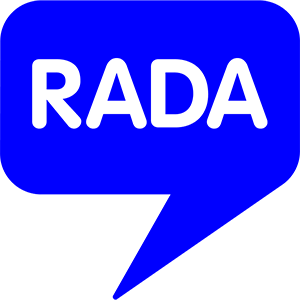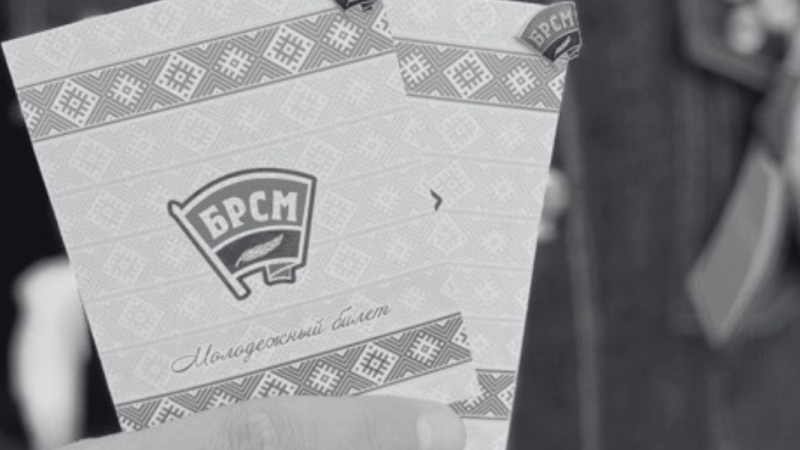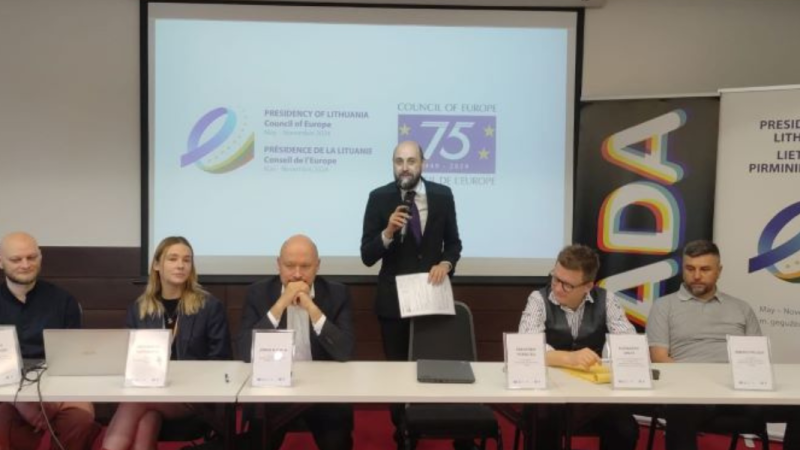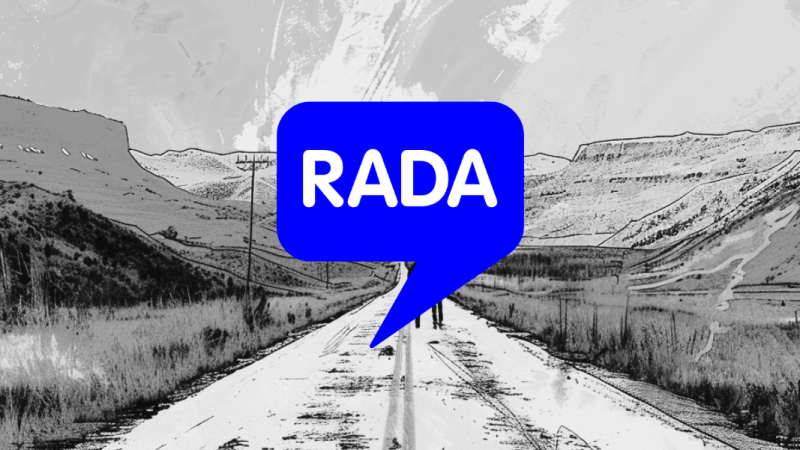Life in Exile
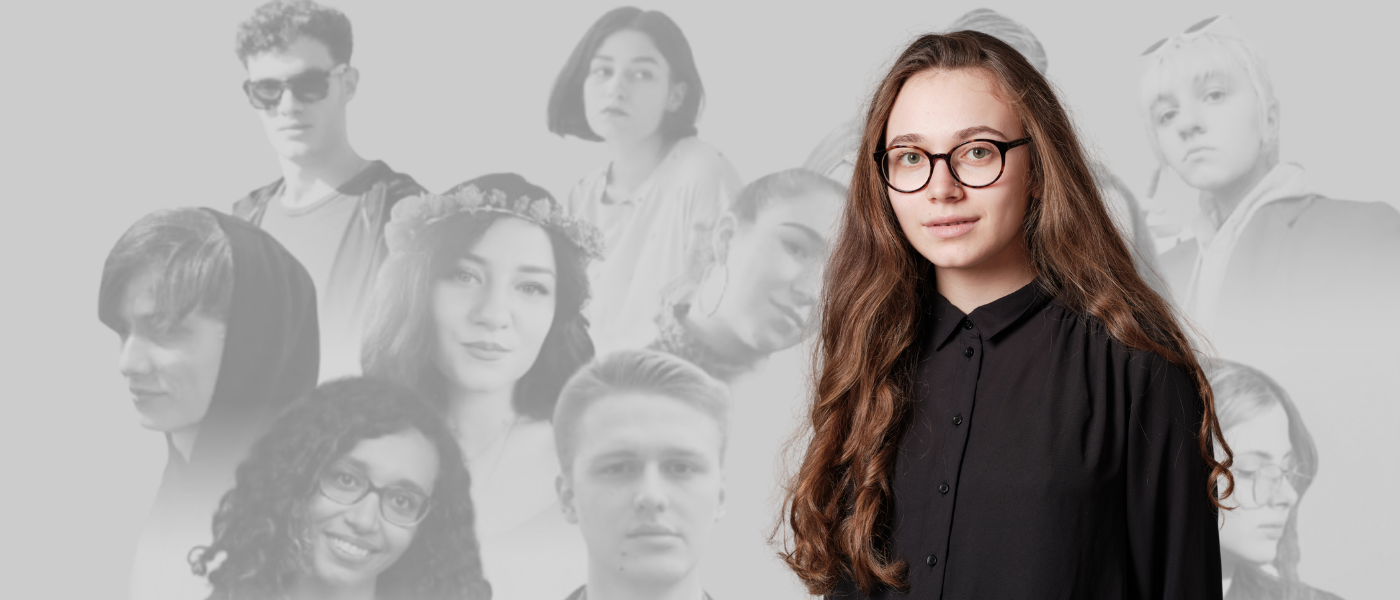
Darya Rublevskaya was one of many students who in the summer of 2020 decided to protest the fraudulent elections in Belarus. Following a wave of arrests, she decided to escape the growing threats and went into exile in Lithuania. An extreme situation for any young person – but Darya does not want to give up. She spoke to Lavon Marozau from the National Youth Council of Belarus.
The presidential elections in Belarus took place on 9 August 2020. The start of the election campaign was marked by arrests of opposition candidates and their supporters. When the protests began across the country, tens of thousands of people were arrested without trial, hundreds were tortured, and around ten people died on the street, in prison or even in hospital. Hundreds of independent organisations have since been deprived of registration in Belarus, and according to various sources at least 50,000 people were in exile last year.
Lavon Marozau, a human rights lawyer and International Secretary of the Belarusian National Youth Council RADA, spoke to a young activist from Belarus, Darya Rublevskaya, about the role of students and her personal involvement in developments in Belarus. Darya works as a human rights lawyer for the human rights centre Viasna, is secretary of external relations of the BSA (Association of Belarusian Students) and a representative of RADA.
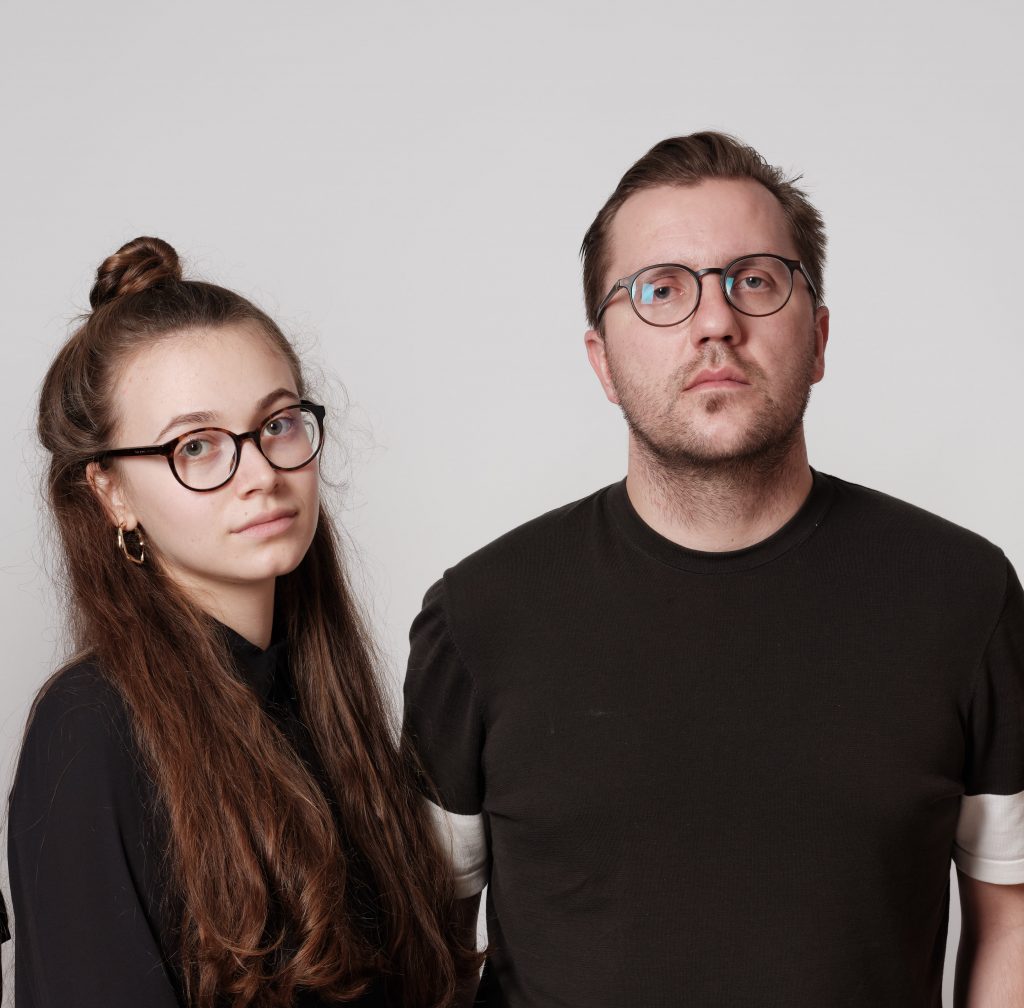
“Young Belarusians are fighting for what their European peers were given in the last century”
Lavon Marozau: Tell us what it was like to be an activist in Belarus. What did you do? How were the circumstances different from those in Europe, and what was special about Belarusian youth?
Darya Rublevskaya: Before 2020, activism in Belarus was like a game of Jenga: you gradually and carefully pull what you need out of the clumsy system and hope it does not collapse. Back then, it was important to look for ways to involve young people in public life, even though society was entirely un-politicised, with zero understanding of the importance of self-governance, democratic values, and participation in state life. We mixed advocacy campaigns with high-profile youth festivals, high-profile (but harmless) actions, and educational programmes. We focused on drawing young people into society and getting students involved in the management of their universities. At the time, any dreams of major protest campaigns at universities were far away. We were realistic and worked with what we had.
Our young people differed – and continue to differ – from their European peers in many ways, including our upbringing, the way we grow and mature, the questions we ask, and the fact that we are apolitical. We grew up in a post-Soviet world that was strained by attempts at a comfortable democracy, inside a tightly controlled education system, and under constant threat of repression for independent activities. Young Europeans have very different problems and ambitions, not least because they don’t have to worry about being arrested at university for putting a sticker on their laptop. Young Belarusians are fighting for what their European peers were given in the last century. For example, one of the Ukrainian National Youth Council’s current priorities is to lower the voting age to 16. We are still at the stage of fighting for simple human democratic elections.
“I photographed bruises, fractures, dislocations and other injuries”
Lavon Marozau: What role did the Belarusian youth and students play in the protests? Were they the main driver of the protests, or did they rather follow the others?
Darya Rublevskaya: You need to understand that alongside the “general” revolution, students conducted their own revolution in the universities. Students went to thematic Saturday marches, marched in student blocs on Sundays to reinforce the general demands of Belarusian society, such as the annulment of the election results, the end of violence and the release of political prisoners, new democratic elections, but they also staged local student protests at universities. So on the one hand, the student community was in line with the general protests, but on the other, it was the engine of its own revolution.
In terms of its overall role, students stuck to the “every day” principle and protested without taking a break on bank holidays or weekends. The students’ impulsiveness, boldness, courage and creativity were an inspiration to many. We went out to protest together with the elderly, with women, we joined factory workers’ solidarity activities and are still supporting almost all activities by political actors.
Lavon Marozau: What were you doing during the actual protests? Why did you have to leave the country?
Darya Rublevskaya: In July 2020 I had started working on a telephone hotline, receiving calls from observers who reported violations of the law or who had been detained for picketing. I also participated in an independent observation of peaceful rallies, where we documented how candidates collected signatures, pre-election rallies in different cities of the country, and other pickets. After the events of 9 August, I began documenting instances of violence and torture against protesters: I listened to and recorded their stories and photographed bruises, fractures, dislocations and other injuries.
At the same time we were preparing for the start of the academic year. We helped set up protest committees, came up with formats for activities and thought about how to get as many students as possible involved in fighting for their rights. Gradually, this turned into daily brainstorming sessions and the organisation of local protests. We assisted the strike committees that were threatened by repression and detention, and provided legal assistance when the administration put pressure on them.
After what happened on election day, I left the country. By then I was an independent observer of peaceful assemblies and documented the events that took place in the city centre. I documented stun grenades, water cannon, beatings of peaceful protesters, the use of tear gas and other things. Law enforcement found out about this and, through the lawyer of a fellow prisoner, let me know that they interpreted this as active participation in the protests and were preparing to detain me.
“Repression and real persecution of young people are on the rise”
Lavon Marozau: What was the most difficult thing about being forced to emigrate?
Darya Rublevskaya: Not seeing my mother for a year and not being able to come to my little sister’s birthday party. Otherwise, it is difficult here. I have had to legalise, learn the language, socialise. It is hard emotionally not to be able to go home when loved ones are ill, when friends are on trial, when a grandfather dies, when a niece is born. It feels as if your real life has been left behind in Belarus, but you can’t get to it in any way, and all you can do is live in a vacuum of work and activism abroad.
Lavon Marozau: Are you continuing your activities abroad? Does it resonate with your audience at home?
Darya Rublevskaya: Of course we continue to work both with those who have stayed in Belarus and with those who’ve been forced to leave. Different requests, different work, that’s why the response is different. It is becoming increasingly difficult to work with young people who stay in Belarus because repression and real persecution of young people are on the rise. But we don’t plan to stop our activities.
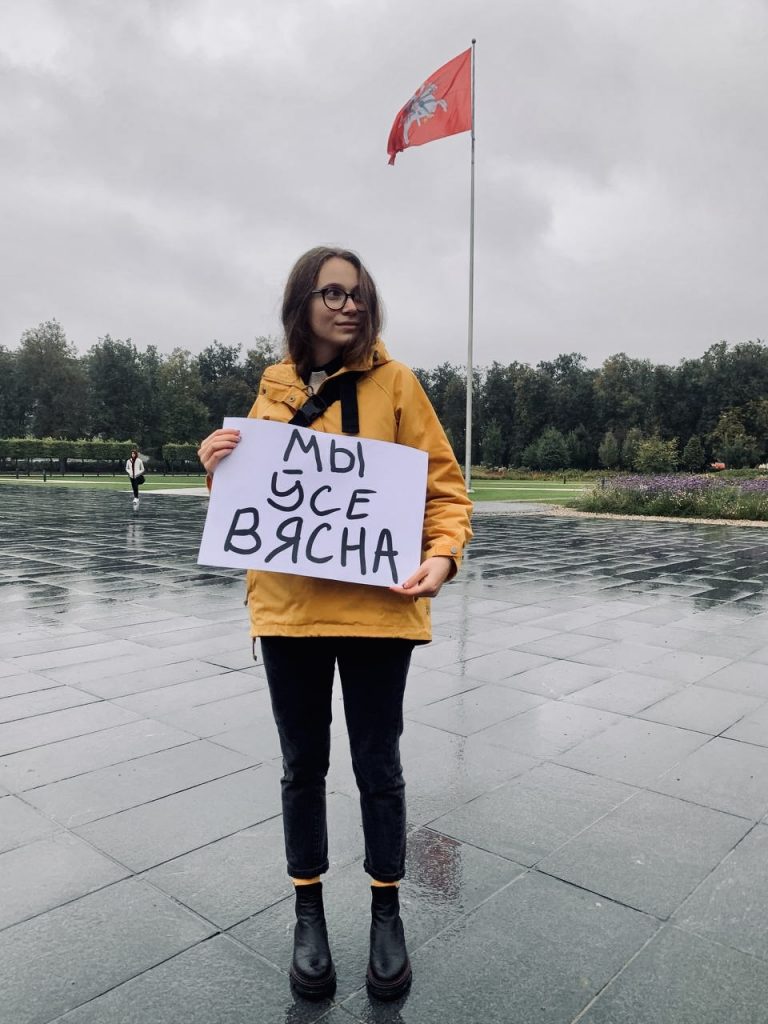
Lavon Marozau: In addition to your student work, you are involved in human rights. Every day you experience a lot of negativity. What do you have to deal with and how do you cope with it?
Darya Rublevskaya: Let’s say a person is detained under a criminal article and taken to a detention centre. Their relatives are frightened, confused and do not know where to hire a lawyer, how to collect packages, where to send letters and other calls. So I advise them. This is emotionally quite taxing, but it’s rewarding to get involved and support every case. People always expect empathy, they need human rights defenders who can take a neutral approach to the case and and have an answer for just about any problem.
I am confronted daily with negativity, with sad news, torture, violence and abuse, rights violations, grief-stricken relatives, frustrated prisoners. This is my job. Knowing that I am able help dozens of people through this time more easily, to support them, gives me the strength to keep going.
“My postcard was the only message of freedom”
Lavon Marozau: You also send letters to political prisoners. Why did you decide to do this?
Darya Rublevskaya: At first it was a very impulsive decision: in the spring of 2020 a wave of administrative detentions swept across the country. A colleague of mine, a human rights activist from Mogilev, was caught up in it. I didn’t know how to support him, so I drew a sprig of lilac on a postcard, sprayed on a bit of my favourite perfume and wrote “Spring will come” on it. It turned out that my postcard was the only message of freedom from the outside to reach him – it released a fragrance inside his cell and reminded him of how many people from outside were waiting for him. He literally cried when he told me about it! I realised then how much support through postcards means to those behind prison bars.
With each response it becomes harder and harder to find the right words. Initially, phrases like “See you soon” or “Good will prevail” resonated and seemed logical, truthful and realistic. I don’t use those phrases any more. They appear totally inappropriate. There is no longer any faith in quick change, either for me or for the recipients.
Lavon Marozau: As far as I know, some of your university friends are among the political prisoners. Why are they in prison and do you manage to stay in touch with them? How do they cope and what do you talk about?
Darya Rublevskaya: This is a very sad, very personal topic. The 12 young men and women who were detained in autumn 2020 were sentenced in the “student trials” to 2 or 2.5 years in prison. Before that they had spent a year in prison without seeing their relatives, let alone their friends. They were blocked from receiving correspondence and were told that their activities had been useless, that they had been forgotten about and their common values betrayed. They are in prison because of an extremely trumped-up political case that paints them as alleged organisers of student protests and as leaders of the strike committees. But this is not true. It is only an attempt to intimidate the entire student movement and show how unprincipled the security forces can be by detaining and bullying a group of 18-year-olds.
They were detained almost all at once: first a group of 11, followed by Tanya Ekelchik a week later. At one point messages started to come in on their chat room: “They’re banging on my door!”, “It looks like they’ve come for me”, and so on. My best friend, Ksyusha Syromolot, sent me SOS messages with GPS coordinates first from her house, then from the KGB building. Then I realised that I wouldn’t see them for at least a couple of years.
While they were in pre-trial detention, we communicated through letters. A very surprising and insanely archaic thing to do in the 21st century: compose a handwritten letter, go to the post office, lick a stamp and send it away in an envelope. About 80% of my letters and postcards were destroyed by the censors and never reached the addressees. For instance, my friend Alanna Gebrahimariyam has not heard from me at all, although I wrote to her once a week.
Now they have all been transferred to penal colonies to serve their sentences. The girls have to sew clothes, the lads do woodworking. The correspondence has improved; sometimes they are even allowed visits from relatives. However, they do not forget the main purpose of detention: to break, to fracture, to humiliate. They are put under pressure, forbidden to communicate with other prisoners, shouted at, blocked from correspondence, visits from their parents are cancelled, and are blackmailed into submission by the withholding of parcels. All so that they “repent” and admit their guilt and ask for a pardon from the president. I know that they all held up well in pre-trial detention, shone in court, and were determined to get through it all with dignity. Now everyone is in a different state. They are tired of the constant pressure and violence.
“I never feel completely safe”
Lavon Marozau: How do you manage to take care of so many people and still get on with your life?
Darya Rublevskaya: At a certain point I decided I could no longer and did not want to live a life of revolution alone. Now I understand exactly what my work and activism are, and I realise that it is just one part of me. Sometimes I have to force myself to reserve a part of myself for my own life rather than give all my energy to others, but it is not an easy process. I stick to the 5.5 working days rule, I go on holidays and take breaks, and I have hobbies and friends outside of activism. I still have to learn the language and take care of my body, so life is still living!
Lavon Marozau: Do you feel safe?
Darya Rublevskaya: Never completely. Safety feels impossible having experienced how the door of my own flat was torn out. Of course I know that it’s much safer in Lithuania and other countries than in Belarus, but it’s not a cure-all either. Belarusian law enforcement agents operate abroad; the forced landing of the Ryanair aircraft showed how uncompromising the regime is towards politically active Belarusians in emigration.
My account and those of other activists have been hacked, our personal data was extracted and published in pro-government Telegram channels in order to discredit our activities and to pressurise and corner us. I have family in Belarus and I live very close to the Belarusian border now, so I have no sense of security.
Lavon Marozau: With so much negativity, how do you manage to live and enjoy your life? Most of your peers have no interest in sending letters to prisoners or helping people who have been arrested, etc. Is it possible to combine these activities with a full and fulfilling life?
Darya Rublevskaya: I don’t know what that classic phrase means, a “full and fulfilling life”. I could have chosen an ordinary, calm and stable life, but it did not seem enough to me. It was not enough. I want to live in a better world, which in Belarus is immediately understood to be some kind of illegal activity. All I want is free elections, the abolition of the death penalty, and a juvenile justice system. What is a peaceful life without that? Yes, some people are able to live without being dragged into this agenda. I understand them. The constant negativity, sadness and inability to influence change is really demotivating. I, too, am demotivated, but I have friends in prison, so is it time to give up? I guess we’ll keep fighting the fight.
I feel like I’m living an interesting life right now. A lot of trials and tribulations, but I have always done, and continue to do, what I think is important and what I enjoy myself. If I could turn back time, I would gladly do it all over again. I would not be ashamed of my choices.
Lavon Marozau: Politics aside, how comfortable (or uncomfortable) are you in Europe? If you could return home under this regime, would you do it? Or under what conditions would you be willing to go home?
Darya Rublevskaya: I like living in Lithuania. Vilnius is calm and balanced, it’s a really nice and comfortable place to live, but it’s still better at home. Local taxi drivers often like to ask about this. They ask, are you going to stay since it’s nice here? I’m grateful to Lithuania and other countries that have opened up to emigrants from Belarus, but I still want to be home. And my home is in Belarus.
Now I have several criminal cases pending, so it’s not safe for me to go back. And I’m not going to be another Kolesnikova. Being a hero is not my strong point. I will go back when it is safe to do so and when it is possible to defend human rights from inside the country without being persecuted. There is no point in me going back just for the sake of it. Apart from the sentiment of returning home, I also have a sober understanding of the significance and importance of the work that has to be done for Belarus.
